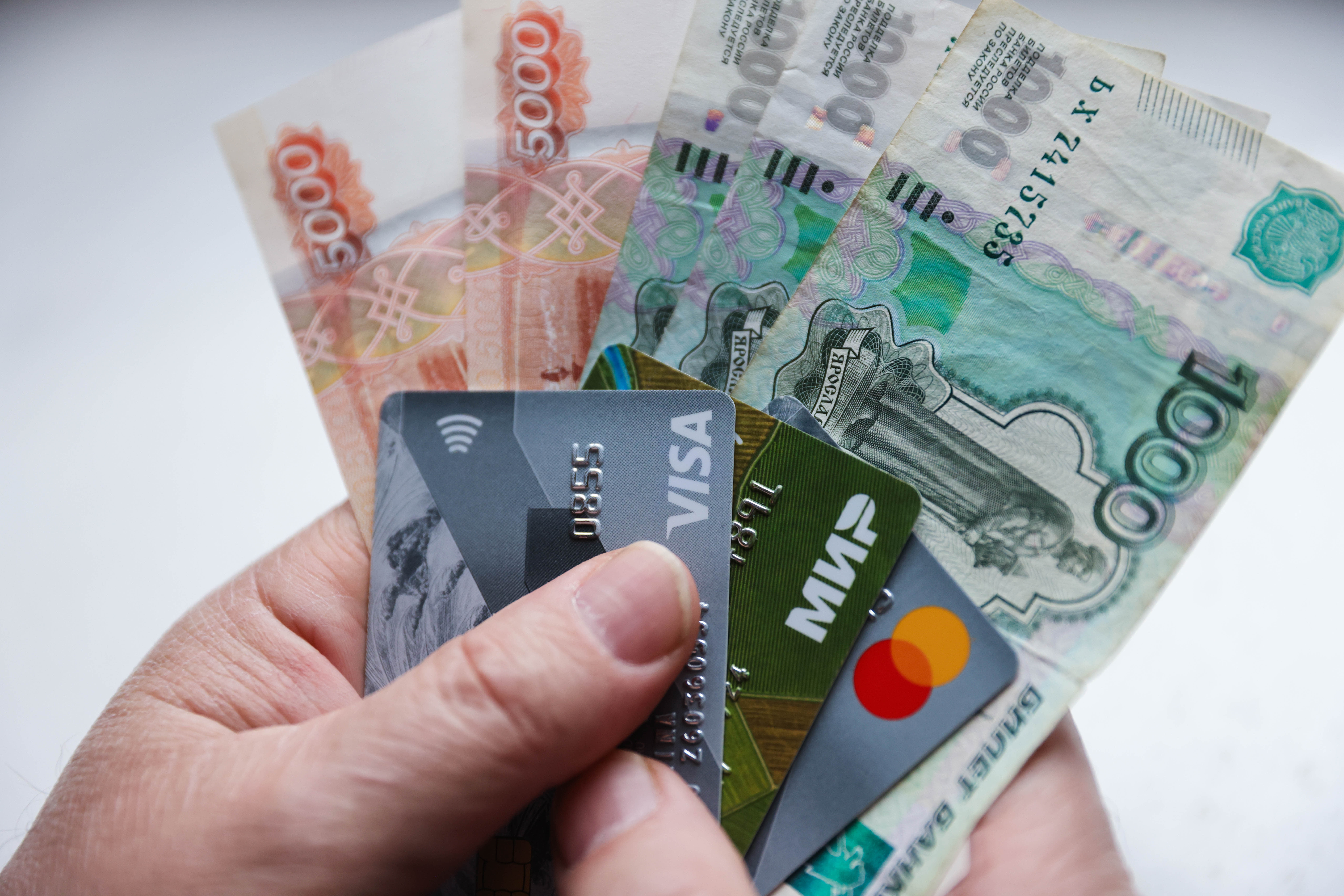Visa and Mastercard block Russian banks from their networks after sanctions
Governments from around the world have imposed a series of sanctions aimed at cutting off Moscow from the global financial system.

This image shows a persons hands holding money and Visa and Mastercard cards. On February 24, the United States announced it was imposing sanctions on major Russian banks, including Sberbank and VTB in response to the special military operation in Ukraine. The sanctioned banks will not be able to re-issue Visa and Mastercard cards after the expiration dates.
Yelena Afonina | TASS | Getty Images
Payment and credit card giants Visa and Mastercard have blocked financial institutions from their networks in response to sanctions targeting Russia after its invasion of Ukraine.
Last week, Russia launched an unprecedented invasion of Ukraine, forcing the U.S. and governments around the world to impose a series of sanctions aimed at cutting off Moscow from the global financial system.
Last week, the U.S. placed a number of Russian individuals and financial institutions on a sanctions list called the Specially Designated Nationals list. It effectively blocks U.S. companies and people from doing business with any individual or entity on that list. Washington also sanctioned Russia's central bank on Monday.
On Monday, Mastercard said it had "blocked multiple financial institutions" from its payment network, without naming companies or individuals. "We will continue to work with regulators in the days ahead to abide fully by our compliance obligations as they evolve," the company added.
Rival Visa has also blocked those on the sanctions list, saying Tuesday that it was "taking prompt action to ensure compliance with applicable sanctions, and are prepared to comply with additional sanctions that may be implemented."
Visa and Mastercard also both pledged $2 million toward humanitarian relief funds for Ukraine.
It comes after the U.S., Canada and European allies agreed Saturday to remove key Russian banks from the interbank messaging system, SWIFT. It means Russian banks won't be able to communicate securely with banks beyond its borders.
The wide-ranging sanctions have caused a plunge in the value of the Russian ruble. Citizens in Russia have also been waiting in long lines to withdraw cash from ATMs.
Meanwhile, Ukraine's Vice Prime Minister Mykhailo Fedorov called on major cryptocurrency exchanges to block the addresses of Russian users.
Bitcoin and other digital currencies could become a way for Russians to potentially circumvent sanctions and get their money out of the country, as cryptocurrencies are not owned or controlled by a single entity like a central bank.
Binance, the world's largest exchange, has said it will block the accounts of Russian individuals who have been sanctioned, but stressed that it will not "unilaterally" freeze the accounts of all Russian users.
- CNBC's Amanda Macias contributed to this report.

 Troov
Troov 





























.jpg&h=630&w=1200&q=100&v=6e07dc5773&c=1)


